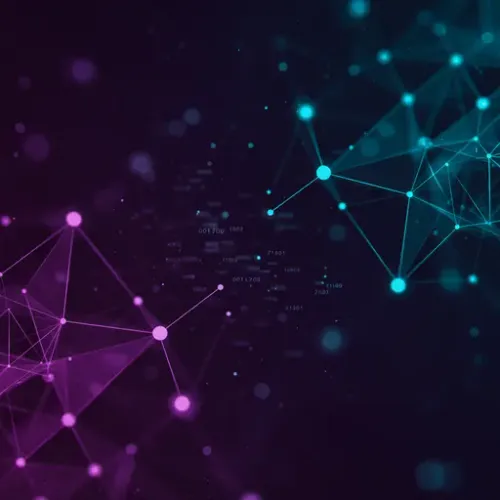Work in the age of artificial intelligence

The AI Report
Daily AI, ML, LLM and agents news
Navigating the AI Revolution: A Nuanced Look at Work and the Future
The dawn of generative artificial intelligence, heralded by tools like OpenAI's ChatGPT and Google's DeepMind, has ignited both fervent excitement and profound anxiety across workplaces worldwide. Unlike traditional AI that merely sorted existing data, these new systems can create novel content – text, images, and video – fundamentally reshaping how we approach work. While corporations envision increased efficiency and profits, critical voices raise concerns about AI's potential for misinformation ("hallucinations"), copyright infringement, and widespread job displacement. So, whose jobs are truly at risk? The answer, according to researchers at Binghamton University, is far more complex than simple headlines suggest.
Beyond the Hype: Understanding AI's True Trajectory
For Carlos Gershenson-Garcia, a SUNY Empire Innovation Professor, the current "AI boom" echoes historical cycles. He points to "AI winters" caused by overhyped expectations that led to funding droughts when breakthroughs didn't materialize as quickly as promised. The key difference today? The world's wealthiest companies are no longer industrial giants but information processing powerhouses. While AI will undoubtedly simplify processes, Gershenson-Garcia emphasizes that it will primarily lead to fewer people being *assisted* by computers, rather than a wholesale removal of humans from the loop. He compares AI's impact on creative fields to photography's influence on painting: rather than ending art, it frees human creativity to explore new, radical ideas, fostering new forms of art in collaboration with machines.
Reimagining Creativity and Collaboration
Christopher Swift, an assistant professor of Art and Design, delves deeper into the creative implications, seeing AI not as a replacement, but as a new collaborator. He argues that AI can decenter the human as the sole "maker," pushing us to view creativity as part of a wider ecosystem involving tools and cultural history. Swift challenges the notion that AI-generated work inherently lacks value, suggesting such a view misunderstands the creative process itself. Crucially, he frames much of the anxiety about AI-driven job loss, particularly in white-collar creative roles, as a critique of capitalism rather than the technology. Corporations, he notes, have historically leveraged new technologies to optimize workforces, a trend AI simply accelerates.
Strategic AI Adoption: Optimizing, Not Just Cutting
Surinder Kahai, an associate professor in the School of Management, highlights the critical decisions facing business leaders. Will AI be used to summarily cut jobs for short-term profits, or will it be optimized as a tool to enhance long-term productivity and quality? The answer determines AI's true impact on the workforce. Interestingly, Kahai suggests AI might disproportionately affect higher-skilled workers, as it can distribute their specialized knowledge to lower-skilled employees, making the latter more effective. This doesn't mean high-skilled roles vanish entirely, but their numbers might shrink. On a positive note, AI offers powerful tools for professional development; for example, role-playing challenging leadership scenarios with AI can help individuals practice and refine their management skills.
Building Trust: The Human-Robot Partnership
The future workplace will increasingly feature humans and robots side-by-side, but as Shiqi Zhang, an associate professor of computing, points out, there's a significant trust gap. Robots and humans currently struggle to understand each other's roles and intentions. Zhang's research focuses on fostering smooth collaboration in everyday environments like hospitals and airports. A key challenge is making AI's decision-making transparent to humans, preventing both undue optimism and skepticism. He explores augmented reality (AR) as a solution, allowing crucial information – like robot locations for safety – to be conveyed without overwhelming users. The ultimate goal is a common language and understanding that bridges the communication gap between human and machine.
The Power of Specificity and Essential Caution
Not all AI is created equal. Alexey Kolmogorov, a professor of physics, champions the immense value of highly specific AI models. His team's MAISE simulation package, for instance, leverages AI to accelerate the discovery of new crystal structures a hundredfold, screening millions of compounds to identify previously overlooked materials. This demonstrates AI's transformative power when tailored to complex, data-intensive tasks. However, Kolmogorov remains skeptical of artificial general intelligence (AGI), stressing that significant breakthroughs are needed for such broad-spectrum AI to become a reality.
Adding a crucial layer of caution is Stephanie Tulk Jesso, an assistant professor of systems science and industrial engineering. She argues that much of the promised benefit of AI in the workplace is oversold, often adding "noise and detail" rather than true value. Tulk Jesso highlights pressing ethical concerns, including copyright infringement, the massive energy consumption of generative AI, and the grim reality of "digital sweatshops" where workers endure harsh conditions to train AI models. She also points to AI's inherent unreliability (recalling instances like Google AI suggesting adding glue to pizza). Fundamentally, she states, we lack sufficient understanding and rigorous testing for AI, unlike established engineering materials. As technology outpaces legislation, Tulk Jesso suggests that collective social action – workers asserting control over their environment through unionization or other means – may be the most potent force in shaping AI's responsible integration.
The Way Forward: Adaptation and Agency
The future of work in the age of AI is not a simple narrative of replacement or utopia. It's a complex landscape shaped by technological capability, corporate strategy, ethical considerations, and human agency. The insights from Binghamton University researchers underscore a critical takeaway: AI is a powerful tool, but its ultimate impact hinges on *how* we choose to design, implement, and regulate it. For individuals, this means focusing on adaptability, embracing AI as a collaborative partner, and recognizing the nuanced ways skills are valued and redistributed. For society, it demands robust dialogue, ethical frameworks, and a proactive stance to ensure that the AI revolution serves humanity's best interests, not just the bottom line. The conversation is far from over; it's just beginning.

The AI Report
Author bio: Daily AI, ML, LLM and agents news
